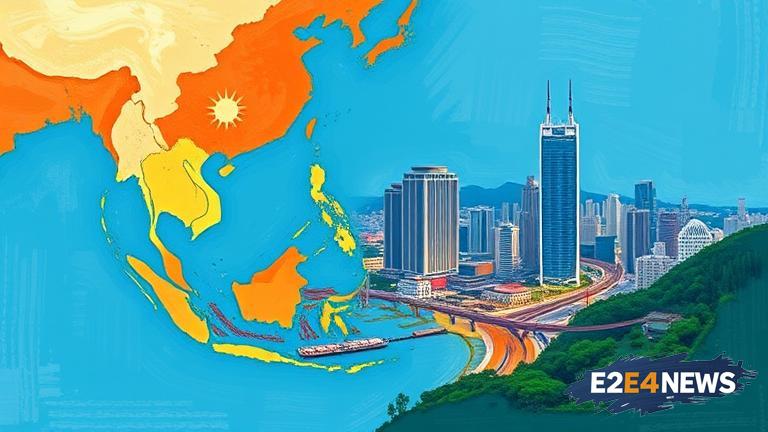Taiwan’s New Southbound Policy, launched in 2016, has been instrumental in promoting cultural exchange and economic cooperation with 18 countries in Southeast Asia, South Asia, and the Pacific. The policy aims to strengthen people-to-people exchanges, enhance economic ties, and promote regional cooperation. One of the key initiatives under this policy is the establishment of the Taiwan-ASEAN Studies Center, which provides a platform for scholars and researchers to share knowledge and expertise. The policy has also led to an increase in the number of international students from these countries studying in Taiwan, with many universities offering scholarships and language courses to attract more students. Furthermore, the policy has facilitated the growth of trade and investment between Taiwan and these countries, with many Taiwanese companies setting up operations in the region. The policy has also promoted cultural exchange, with many cultural events and festivals being held in Taiwan and these countries. For example, the Taiwan Festival was held in Indonesia in 2019, featuring Taiwanese music, dance, and theater performances. Similarly, the ASEAN Festival was held in Taiwan in 2020, showcasing the culture and traditions of the ASEAN countries. The policy has also led to an increase in tourism between Taiwan and these countries, with many tourists visiting Taiwan to experience its unique culture and natural beauty. In addition, the policy has promoted cooperation in areas such as agriculture, healthcare, and technology, with many joint research projects and initiatives being launched. The policy has also facilitated the growth of small and medium-sized enterprises (SMEs) in Taiwan, with many SMEs exporting their products to these countries. Moreover, the policy has promoted the development of Taiwanese language and culture, with many language courses and cultural programs being offered in these countries. The policy has also led to an increase in the number of Taiwanese volunteers and NGOs working in these countries, with many organizations providing humanitarian aid and assistance. Overall, the New Southbound Policy has been a significant success, promoting cultural exchange, economic cooperation, and regional cooperation between Taiwan and the 18 countries in Southeast Asia, South Asia, and the Pacific. The policy has also contributed to the growth and development of Taiwan’s economy, with many Taiwanese companies benefiting from the increased trade and investment. The policy has also promoted people-to-people exchanges, with many Taiwanese citizens visiting these countries for tourism, education, and business. In conclusion, the New Southbound Policy has been a key initiative in promoting Taiwan’s cultural and economic ties with the region, and its success is expected to continue in the coming years. The policy has also demonstrated Taiwan’s commitment to regional cooperation and its desire to play a more active role in the region. With its rich culture, unique history, and stunning natural beauty, Taiwan is an attractive destination for tourists and investors alike. The policy has also promoted the development of Taiwan’s infrastructure, with many new transportation links and logistics facilities being built to facilitate trade and investment. The policy has also led to an increase in the number of foreign companies investing in Taiwan, with many companies setting up operations in the country. The policy has also promoted the growth of Taiwan’s service sector, with many companies providing financial, legal, and consulting services to clients in the region. The policy has also facilitated the growth of Taiwan’s e-commerce sector, with many online platforms and marketplaces being established to facilitate trade and commerce.
